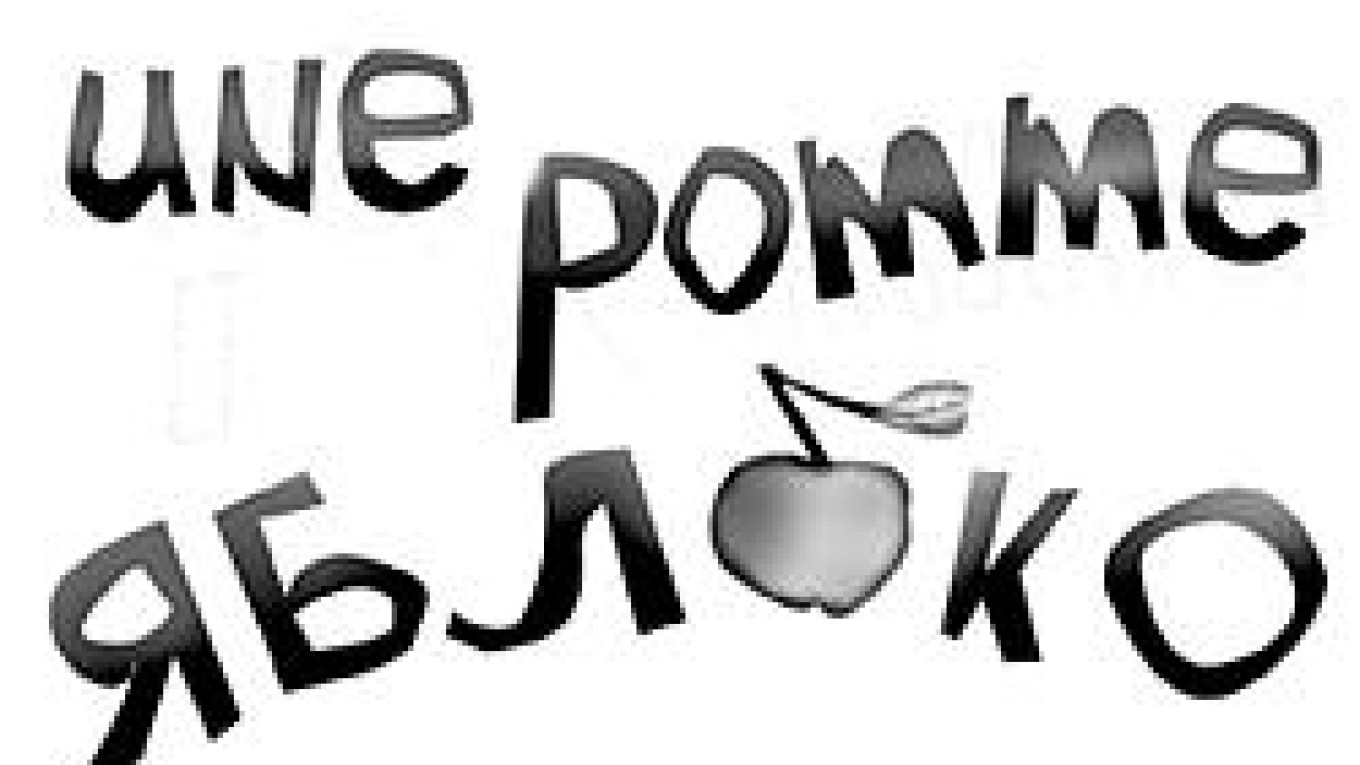After the Revolution, things changed dramatically. Literature was now supposed to be written by the masses and for the masses, so any traces of "bourgeois" influence were subject to extermination. But foreign literature was a problem, since Western authors were never shy about sprinkling their texts with quotes from other languages. When this occurred, Russian translators and editors had to employ footnotes, translating even such set phrases as joie de vivre or veni, vidi, vici. This practice knew its silly extremes too. In a parody of Hemingway and his Russian translators from the 1990s, humorist Andrei Knyshev used the Spanish word escoceses ("the Scottish") a dozen times, each time giving it a different footnote.
Today the practice of foreign-language insertions seems to be returning. Arsen Revazov quotes songs and other texts in at least a dozen foreign languages, from Japanese to Portuguese, in his conspiracy-themed hit "Solitude-12" (Odinochestvo-12). Preserving the link with Soviet tradition, however, he provides a footnote for each quote. Linor Goralik and Stanislav Lvovsky used a more radical tactic in their novel "Half of the Sky" (Polovina Neba). The novel's characters are cosmopolitan and well-traveled, and some of the action takes place in the United States. And so, quite often, without any pressing need, the dialogue or narration slips into English. There are no explanations, no footnotes. The novel is clearly intended for people with a passable command of English who could read these pages without thinking twice.
Despite certain misgivings -- like the fact that this makes it more difficult to recommend the book to my grandmother, for instance -- I see this as a good sign. Russian literature is diversifying, and a new, better educated generation of readers is taking shape.
A Message from The Moscow Times:
Dear readers,
We are facing unprecedented challenges. Russia's Prosecutor General's Office has designated The Moscow Times as an "undesirable" organization, criminalizing our work and putting our staff at risk of prosecution. This follows our earlier unjust labeling as a "foreign agent."
These actions are direct attempts to silence independent journalism in Russia. The authorities claim our work "discredits the decisions of the Russian leadership." We see things differently: we strive to provide accurate, unbiased reporting on Russia.
We, the journalists of The Moscow Times, refuse to be silenced. But to continue our work, we need your help.
Your support, no matter how small, makes a world of difference. If you can, please support us monthly starting from just $2. It's quick to set up, and every contribution makes a significant impact.
By supporting The Moscow Times, you're defending open, independent journalism in the face of repression. Thank you for standing with us.
Remind me later.


